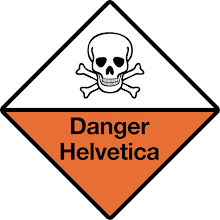Several times during the past two weeks of discussion I noticed that people sometimes use the first person "we" when they are referring to European colonists. Logically, this does not make sense. None of us, in fact, nobody alive today, was one of those colonists.
Usually when we say "we" we are talking about the degradation/displacement/killing of Native Americans. This makes sense on a psychological level: we want to release ourselves from social culpability by accepting guilt for actions of members of our race against members of another race (none of the [originally] subjugated Native Americans are alive today either, though their descendants have to live with the consequences.).
So I have a question. Is it right or necessary for us, modern Americans European descent, to identify ourselves with the European conquerors of the 1600s?
On one hand, we shouldn't need to. None of us have killed Indians, most or all of us have never done anything to directly harm Native Americans individually or as a race, culture, or nation. A great many of us are not the descendants of "original" English colonists; I for one am mostly non-English, and both sides of my family came to America long after the colonial period.
On the other hand, we cannot deny that English colonists through force established themselves as the dominant social order on the North American continent, and that perhaps all of us who have inherited that social order and its dominance through the virtue of our race only have responsibility for it by virtue of our race only.
On the third hand, identifying ourselves so closely with the colonists simply because of our race must reinforce the concept of our race as a whole and revive its status as subjugator. By accepting responsibility for the actions of historical white Europeans, we are to some degree taking on the racial role and transferring it to modern times.
Sunday, February 7, 2010
Subscribe to:
Post Comments (Atom)

First off, I'd like to praise your making me picture you with three hands. I don't know why, but your third ended up on your neck.
ReplyDeleteAnyway, I love that you posed this question. I was actually thinking about this when we were talking about it in class because I realized I was stumbling over the words I was using to describe the European colonists. At first it was just an innocent stutter, but I quickly found myself wondering "what WAS I going to say?" and "does that even make sense?"
As it turns out, I've come to the conclusion that I do not agree with saying "we" when referring to these early settlers of the nation. I mean, for one thing, like you said, it makes no real sense. Plus, I hate the idea of things as terrible as some of those from our country's past being passed down for us to claim. It's nothing to be proud of--nothing I'd like to be associated with.
I guess it's weird though because people do that with other things too like equal rights movements. I could see African-Americans or women who weren't actually involved in their respective movements saying something like "yeah, we worked hard to get where we are today", and I wouldn't have any problem with it. But you don't see a convicted murderer saying "oh yeah, we got three more today" when another serial killer's victims are discovered or an elderly man saying "yeah, we won the big one" when a complete stranger of an elderly woman from another state wins the lottery. I guess it depends on the group of people involved.
And I guess the settlers of early America are not members of a group I'd like to be involved with.
It's late. I hope this makes sense. . .
I really liked the points you brought up- both of you. I hadn't really noticed/thought about any of this before. I especially liked your "third hand" point. By saying 'we' are we actually bringing something from the past and making it a part of the current world? It seems like just a word that really doesn't mean a whole lot, but we're taking on something pretty big by using it. I don't know if we should stop using it, but we all should definitely think about what we're really saying and proceed with caution.
ReplyDeleteI will admit that I tend to use "we" as you referenced. Even when I am using it, though, I do think of many of the points you raised (but generally with only two hands).
ReplyDeleteAs white Americans, I think we often search for our identity in the roots of Virginia and Massachusetts Anglicans. In reality, most of our societal beliefs come from the immigrants who became most prominent in the late 19th Century: Irish Catholics and German Protestants.
I see two underlying possiblities for the use of we: That we like to put ourselves in that position of power as the subjugator to feel supreme.
Or that we put ourselves in power as the subjugator to feel supreme AND by doing so grant ourselves the power to fake humility and sorrow by taking unneeded blame for the sins of those who were not even our ancestors.